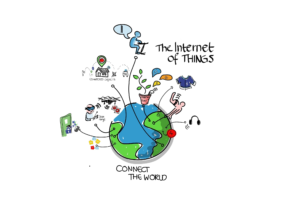How Artificial Intelligence Will Change Jobs and Industries Forever
Artificial Intelligence is rapidly transforming the global landscape, impacting every aspect of our lives, from work to leisure. This revolutionary technology has the power to fundamentally alter the job market and reshape industries as we know them. It’s a double-edged sword, offering unparalleled opportunities while also posing significant challenges to existing employment models. This article will delve into the intricate ways AI will change jobs and industries, exploring potential impacts on various sectors, and providing a clear roadmap for navigating this transformational era. We’ll examine how AI-driven automation is impacting roles currently occupied by humans, highlighting both the threats and opportunities presented by these advancements. We’ll also explore how the future of work will require individuals to upskill and reskill to remain competitive in this new era.
1. The Impact of AI on Existing Jobs
1.1 Job Displacement: A Necessary Transition
Artificial intelligence is rapidly transforming industries, leading to increased automation. Manufacturing, transportation, and customer service are just a few sectors witnessing a shift toward AI-powered systems. This trend raises concerns about job displacement, as routine tasks become automated. However, this transition is not inherently negative. It’s an evolution, not a sudden disruption. The shift frees humans from repetitive tasks, enabling them to focus on more complex and creative aspects of their work. The automobile industry, for instance, has undergone this transformation. Factory jobs requiring repetitive movements are being replaced by robots performing the same task with increased efficiency and speed. At the same time, the industry is creating new positions related to AI maintenance, programming, and data analysis.
1.2 New Roles and Emerging Skillsets
While some roles may be automated, new roles are emerging. Data scientists, AI engineers, machine learning specialists, and robotics technicians are now in high demand. These individuals will drive and maintain AI systems, and this is where individuals need to focus their efforts in reskilling and upskilling. The ability to adapt and learn new skills will be critical to success. The need for adaptable employees, capable of continuously learning and evolving alongside the technology, is crucial.
2. Transforming Industries with AI
2.1 Revolutionizing Healthcare
AI is revolutionizing healthcare through the automation of administrative tasks and assisting medical professionals in diagnosis and treatment. AI-powered tools can analyze vast amounts of medical data, potentially leading to quicker diagnoses and more personalized treatment plans. Medical imaging analysis, drug discovery, and patient monitoring are examples of areas where AI is already impacting medical practice. The potential for AI to reduce diagnostic errors and improve treatment outcomes is enormous, and this trend will continue to grow. Furthermore, AI will enhance the speed and accuracy of diagnoses and treatment procedures.
2.2 Transforming Financial Services
The financial services industry is another sector experiencing significant transformation with AI. Financial institutions are leveraging AI for fraud detection, risk assessment, and customer service automation. Chatbots and AI-powered algorithms are becoming increasingly common for customer support, investment advice, and financial planning. The financial industry is looking to improve efficiency and reduce costs using AI.
3. Challenges and Ethical Considerations
3.1 The Skills Gap
One significant challenge is the skills gap. The rapid pace of technological advancement requires employees to acquire new skills quickly. Upskilling and reskilling initiatives are essential, but they must be tailored to meet the evolving demands of the job market. Employers must invest in training and development programs to equip their workforce with the needed skills.
3.2 Ethical Concerns
Ethical considerations surrounding AI are also paramount. Bias in algorithms, data privacy concerns, and the potential for misuse of AI systems are critical issues that need careful consideration and regulation. It is critical to avoid biases, ensuring fairness and equal opportunity in all situations. Regulations are crucial to guide the responsible development and implementation of AI technology. Establishing clear guidelines and protocols are necessary to promote transparency, accountability, and ethical practices in the field of AI.
4. Future of Work in the AI Era
4.1 Adapting to the Changes
The changing nature of work requires a proactive approach to adaptation. Embracing lifelong learning is crucial to stay ahead of the curve. Employees who are open to learning new skills and technologies will thrive in this new era. Online courses, workshops, and certifications are now accessible to many, enabling individuals to develop the necessary AI-related skills. Investing in education and upskilling is key.
4.2 Collaboration Between Humans and AI
The future of work will likely involve collaboration between humans and AI. Humans will bring creativity, critical thinking, and emotional intelligence, while AI will handle repetitive tasks, data analysis, and decision-making support. This synergy will result in a more productive and efficient workforce.
Related Post : How Biotech Is Pushing the Boundaries of Medicine and Healthcare
5. Navigating the Future
5.1 The Importance of Continuous Learning
The evolution of the job market demands a commitment to continuous learning. Staying updated on emerging technologies, trends, and best practices is essential to remain competitive. Individuals must embrace the need for constant self-improvement to keep pace with the ever-changing professional landscape. Upskilling and reskilling in areas relevant to AI is crucial.
In conclusion, Artificial Intelligence is poised to revolutionize the job market and industries in profound ways. While automation may displace some jobs, it will also create new opportunities and demand new skillsets. Individuals who proactively adapt to the changes and embrace lifelong learning will thrive in this evolving landscape. To successfully navigate the future of work, continuous learning and upskilling are crucial. Consider exploring online courses, workshops, and certifications relevant to emerging technologies to enhance your professional skills and career prospects.
Share this content:














Post Comment